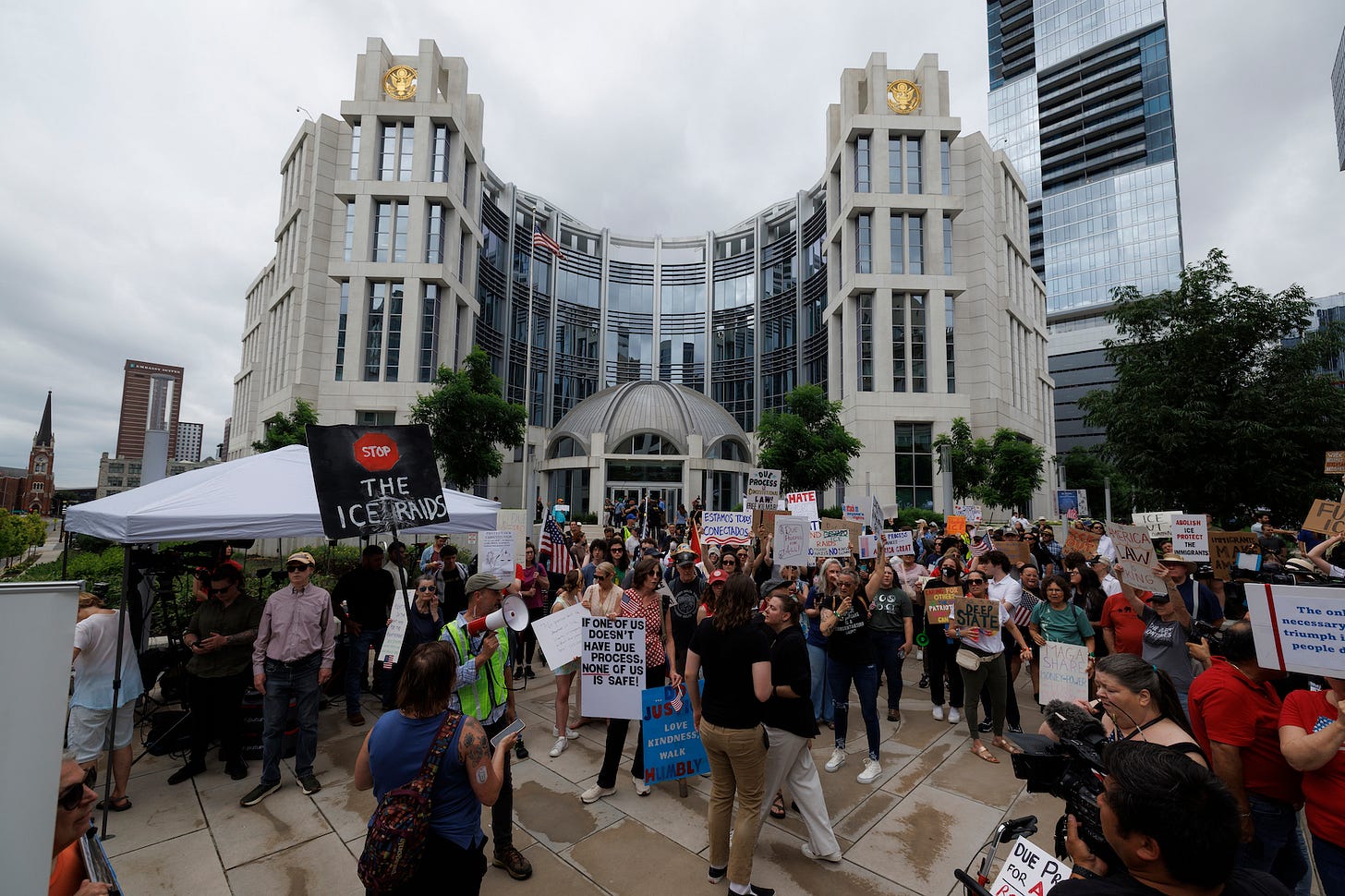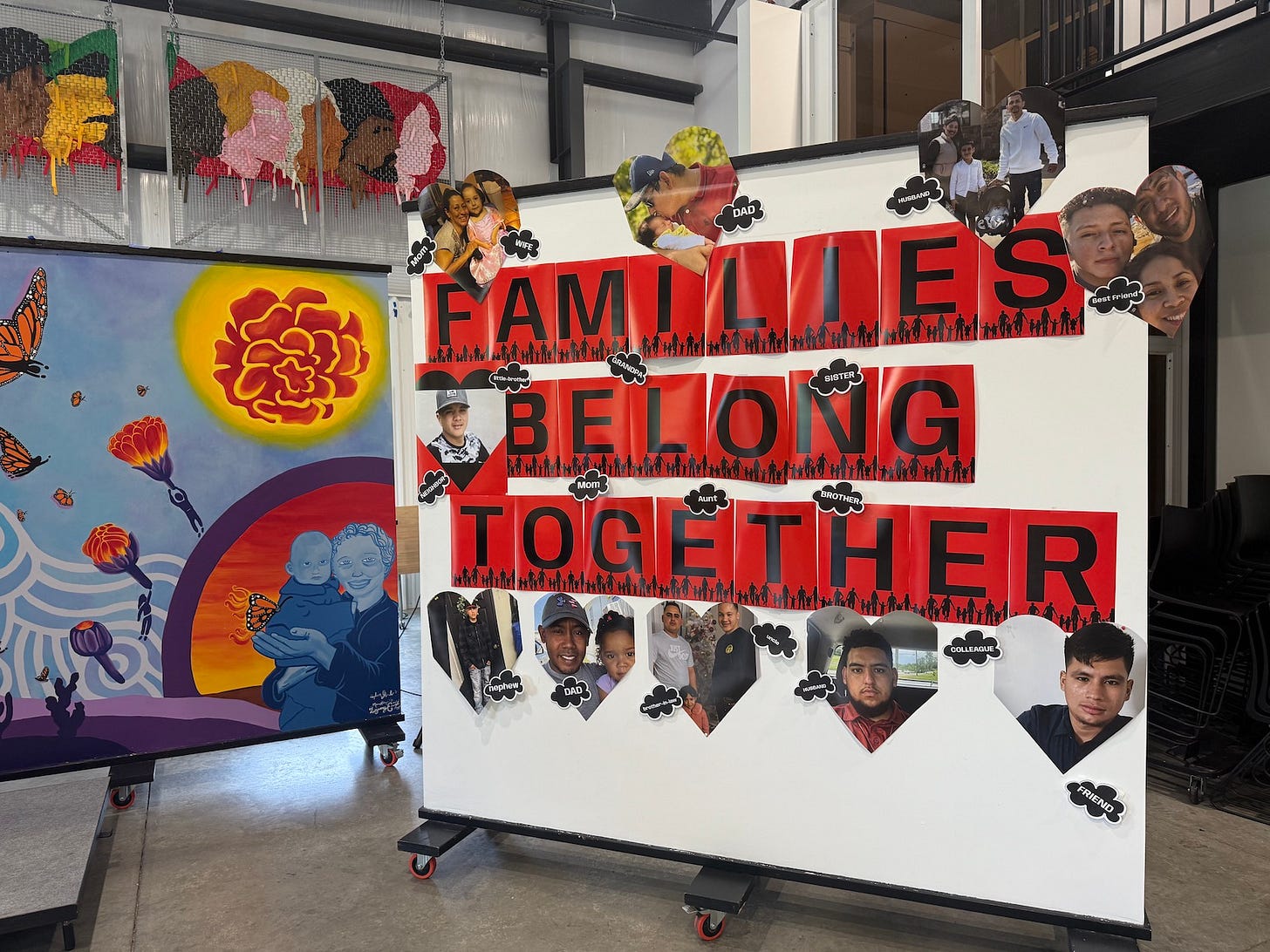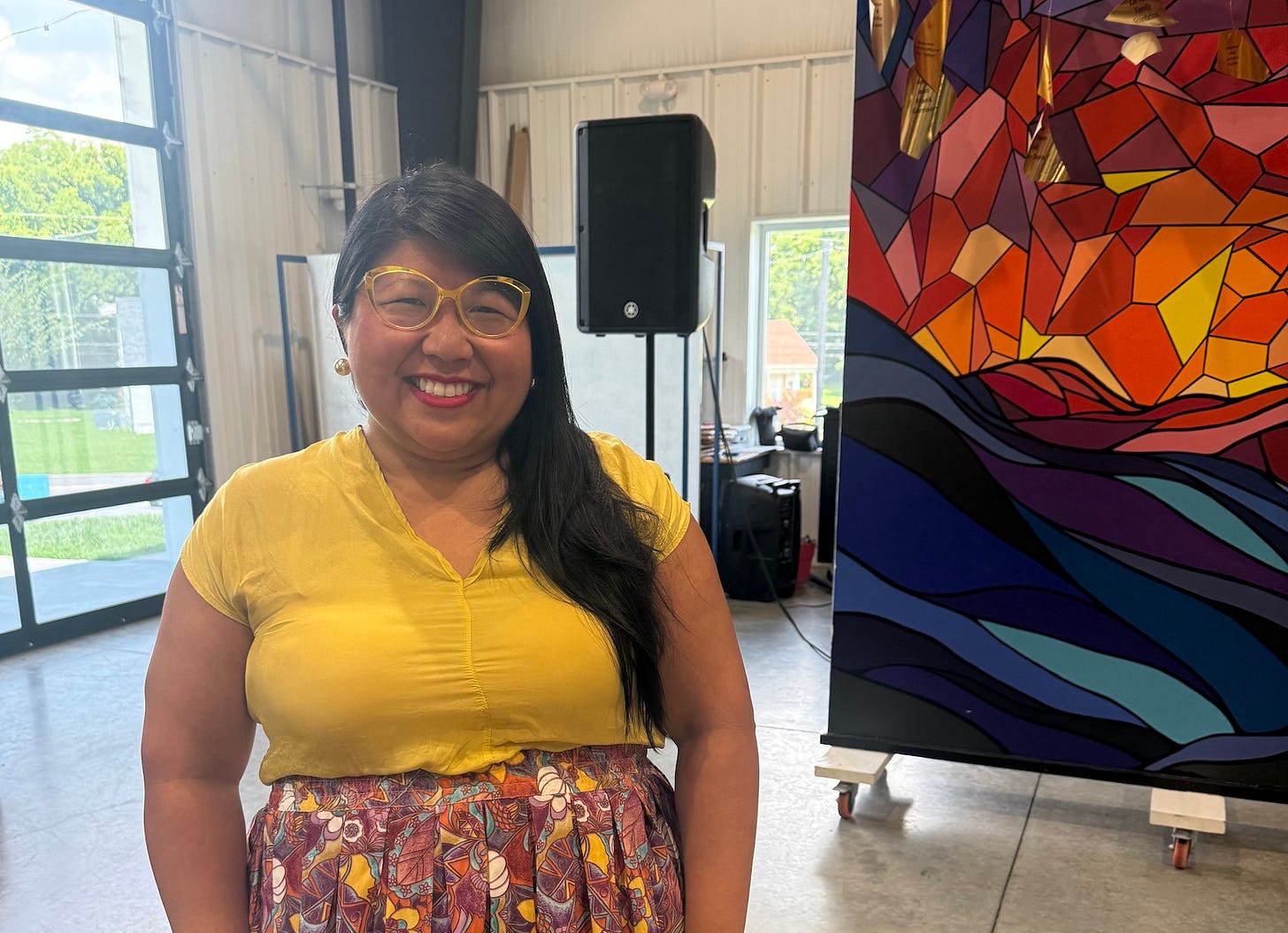Kilmar Abrego Garcia's hearings in Nashville stir up memories of ICE raids
Exactly one month before Abrego's arraignment, ICE arrested nearly 200 people in raids that shook Music City's immigrant community.
For life and newsgathering, being there is half the battle.
This story is made possible through interviews on the ground with members of the Nashville community sharing insights about their response to Abrego’s case. Support that reporting by becoming a subscriber, and unlock special coverage.
Exactly one month before Kilmar Abrego Garcia’s arraignment, state and federal law enforcement began the first of 10 days of raids targeting Nashville’s immigrant community.
Immigrations and Customs Enforcement announced the operations on May 13, collaborating with the Department of Homeland Security, the Bureau of Alcohol Tobacco Firearms and Explosives, and the Tennessee Highway Patrol.
In its press release, ICE claimed that it had arrested “196 criminal illegal aliens,” including “some” with “significant criminal histories.” The agency highlighted seven anonymous cases involving gangs, sexual assault, and drugs. ICE also acknowledged that fewer than half have prior criminal convictions or pending charges.
Local immigraton advocates in Nashville say that the sweep was anything but “targeted.”
“It was clearly a racial profiling operation, and you can see here on one of our walls — our murals — the faces of some of the people who were picked up as part of that raid,” Lisa Sherman Luna, the executive director of Tennessee Immigrant and Refugee Rights Coalition (TIRRC), said in an interview at the group’s headquarters.
Abrego’s wife Jennifer Vasquez Sura delivered an emotional statement while standing next to that mural at a press conference on Wednesday, hours before a judge would decide her husband’s conditions of supervised release.
“It’s been 106 days since he was abducted by the Trump administration and separated from our family,” Vasquez said. “Over three months, we had to stand up and plead for his liberation. He missed birthdays, graduations and Father’s Day, and today, he misses our wedding anniversary.”
Watch the video of her remarks below.
Hours after the press conference, Vasquez and her husband sat dozens of feet away from each other in a federal courtroom for his court hearing. Abrego, wearing a red-and-orange prison jumpsuit, sat at the defense table focused on the legal proceedings until the court took a brief recess.
With court out of session, the couple locked eyes. Abrego gave his wife a loving look for several seconds until the courtroom session resumed. But any hope for a speedy reunion would be quickly dashed. Prosecutors have made all but certain that Abrego would be put in immigration detention shortly after his release pre-trial on his indictment.
The hearing ended, not with Abrego’s release to his wife, but with two new questions to be resolved: Can the government ensure that Abrego will not be deported again before his trial, and if so, will the government detain him in a jail close enough to the courthouse to protect his constitutional rights to a fair trial?
For now, the government is providing no guarantees.
“A dragnet operation”
Tennessee’s immigration advocates have accompanied Vasquez on her now-regular trips from Maryland to Tennessee, and for the foreseeable future, Vasquez will have to keep taking those journeys in order to see her husband. Locals here find multiple parallels between Abrego’s case and the experiences of their immigrant community.
Like Abrego, immigrant families here have spent long periods of time not knowing where their close relatives are, according to local advocates and politicians.
Underneath the Trump administration’s branding of “targeted” enforcement, Sherman Luna saw a “dragnet operation” targeting Nashville’s Antioch neighborhood, a diverse immigrant community.
Sherman Luna said that the modus operandi was, “Let's stop as many brown people as we can, and surely out of all those stops, we'll find somebody with something in their background.”
The ripples of the raid went beyond the families of the people arrested.
“We saw the fallout on local businesses,” Sherman Luna told All Rise News. “People stopped showing up for work. Small businesses had to even close as a result of people either being deported or people not coming, out of fear. Schools were facing a big challenge of getting students to come to school.”
Nashville’s memory of the raids immediately became apparent exactly one month later on June 13, when hundreds of people showed up to protests outside the Fred D. Thompson Federal Courthouse where Abrego was being arraigned.

Inside the building that day, Abrego pleaded not guilty to the charges, and cross-examination of an FBI agent revealed gaping problems with the government’s evidence. U.S. Magistrate Judge Barbara Holmes issued a ruling a week later that prosecutors could not legally justify Abrego’s pre-trial detention, skewering the “unreliable” cooperating witnesses, “double hearsay” evidence, and allegations that “defy common sense.”
During today’s hearing, Judge Holmes set the terms of Abrego’s release, but actual freedom for Abrego still appears to be a long way away.
“I’m here, but I’m not alone”
The Middle District of Tennessee’s Acting U.S. Attorney Robert E. McGuire has repeatedly emphasized that if Abrego is released, immigration authorities will take him into custody.
As a result of the government’s position, it remains unclear how many more of these 700-mile trips Vasquez will take to see her husband in court.
“I find myself again torn from my children, traveling back to Nashville to fight for Kilmar’s freedom,” Vasquez said inside TIRRC’s offices. “Instead of celebrating our love surrounded by family, I’m here, but I’m not alone.”
Councilmember Terry Vo, who represents Nashville’s District 17, told All Rise News that the local and national struggles have become intertwined: “Getting to spend time with Kilmar's family — letting them know that they are welcome here — is really important, and I think that we want them to know that they are a part of our community.”
Vo is one of seven metro council members who sued the state government over a law that they say treats advocacy of sanctuary policies as a class E felony.
“To me, the law makes it unclear what I can and cannot do as an elected official, as I try to carry out my job,” Vo said. “It's about determining what local elected officials can do without violating the law or silencing ourselves in representing the people that we serve.”
That isn’t the only immigration advocacy Tennessee state lawmakers have tried to criminalize.
After Nashville Mayor Freddie O'Connell (D) issued an executive order requiring city agencies to publish their interactions with federal immigration enforcement, state Republicans responded by drafting a bill that would treat officials’ disclosure of the identities of ICE agents as a felony.
As masked ICE agents hide their identities across the country making arrests, Sherman Luna sees this local law as another step in building a “secret police” — a federal immigration force “that's not accountable to anybody, that is not transparent, that can operate with impunity.”
Despite being a deep red state, Tennessee became one of the first in the nation to allow undocumented immigrants to obtain driver’s licenses in 2001. State lawmakers later revoked the policy, but the achievement galvanized local immigration advocates. The Tennessee Immigrant and Refugee Rights Coalition formed two years later, and it remains the local hub of immigration activism.
For Sherman Luna, Tennessee’s immigration politics tell an important story about the Trump administration’s broader agenda.
“I think the other parallels for us with the Kilmar case, and just Tennessee as a whole, is the erosion of due process, not just for individuals, but the threats overall to our democracy,” she said. “And so the state of Tennessee has long been the tip of the spear in pushing authoritarian policies.”






We citizens need to find a way to collectively battle the secret police across the USA. What is the method to do so?
Thanks Adam. This has been personal to me as a Marylander. Just makes me crazy they would take their hate and retribution out on one man. Truly abhorrent. Glad to see Terry Vo helping out. Anyone who can't "pass" could be punching bags for ICE. ICE has lost their humanity.